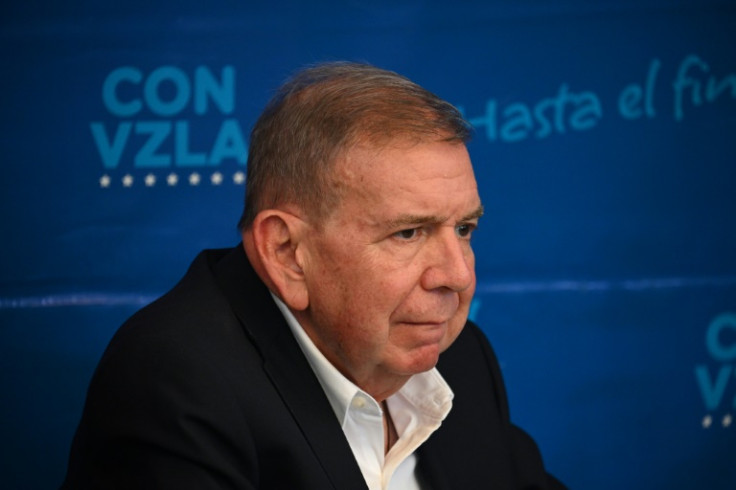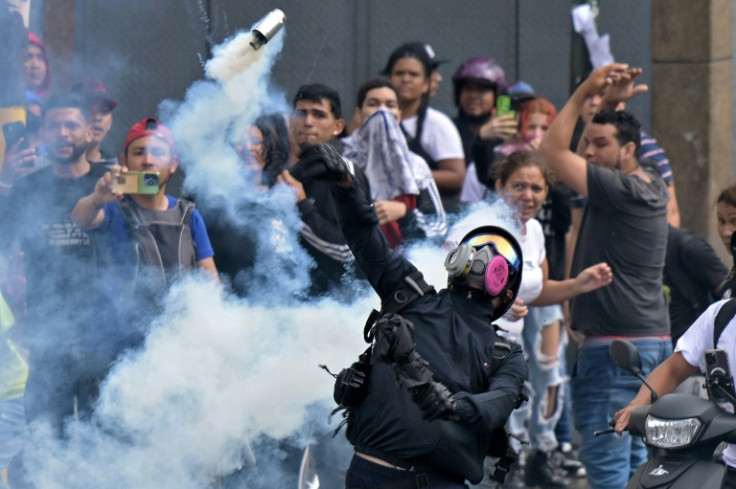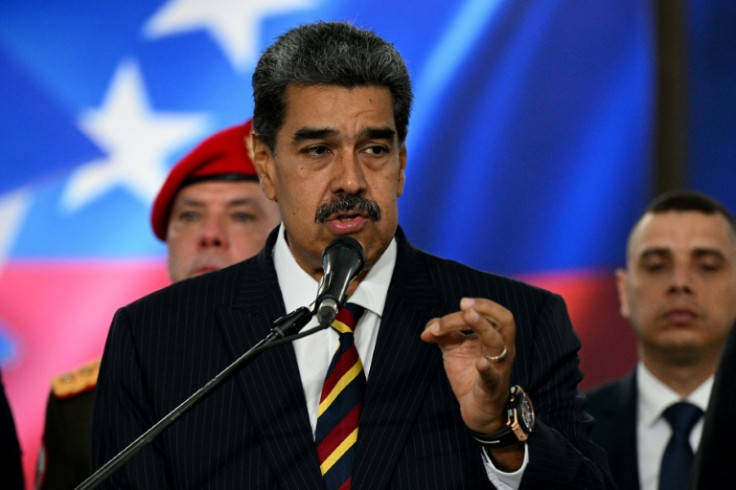Maduro Urges State 'Iron Fist' As Protest Toll Mounts

Venezuela's President Nicolas Maduro called Monday for the state to use an "iron fist" after deadly protests in response to his July reelection, which has been dismissed at home and abroad as a sham.
As the official protest death toll rose to 25, Maduro urged "severe justice" for violence he blames on the opposition, which insists its candidate Edmundo Gonzalez Urrutia had won the July 28 vote by a landslide.
"I demand from all the powers of state greater speed, greater efficiency and an iron fist against crime, against violence, against hate crimes," the socialist leader told a defense council meeting.
Widespread protests broke out after Maduro was declared reelected by the CNE electoral council seen as loyal to his regime.
Observers reported a brutal security force crackdown with more than 2,000 arrests.
Maduro, in turn, blames Gonzalez Urrutia and popular opposition leader Maria Corina Machado -- who was ruled out of running for the presidency by institutions aligned to the state.
"Where are the intellectual authors of this violence, where are the financiers of this violence, where are those who planned it?" Maduro railed on Monday.
"Where is Mr Edmundo Gonzalez Urrutia? Why did he flee? why does he not show his face? Where is the greatest fascist, Mrs Machado, who ordered to kill, who ordered to assassinate?" he continued.
Both leaders have gone into hiding, citing fears for their lives and threats of arrest.
The CNE declared Maduro the victor within hours of polls closing, giving him 52 percent of ballots cast. It did not provide a detailed breakdown.
The opposition says its own tally of polling-station-level results showed Gonzalez Urrutia, a 74-year-old retired diplomat, had won more than two-thirds of votes.
Several Western and Latin American states have rejected Maduro's claimed victory.
At Monday's meeting, regime-aligned Attorney General Tarek William Saab said two national guard members were among 25 people to have died in protests in the two days following the vote.
Maduro has accused the opposition leadership of encouraging a "coup d'etat" against him, and of fomenting a "civil war situation" he said has been neutralized.
Maduro's previous reelection, in 2018, was rejected by dozens of countries, including the United States and EU members.
But years of damaging sanctions failed to dislodge the president, who enjoys loyalty from the military leadership and state institutions, as well as Russia, China and Cuba.
Brazil, Colombia and Mexico -- whose left-wing governments have relatively friendly relations with Venezuela -- have yet to recognize Maduro as the winner, instead calling for the CNE to release detailed results.
US Secretary of State Antony Blinken discussed with his Colombian counterpart the "need for electoral authorities in Venezuela to publish transparent, polling station-level results... and for security forces to refrain from violating Venezuelans' human rights and freedom of expression," a State Department statement said.
Earlier Monday, the US State Department denied a Wall Street Journal report that Washington had offered Maduro amnesty as a possible way out of the new crisis.
But it said it was "considering a range of options to pressure Maduro to return Venezuela to a democratic path."
And EU foreign affairs chief Josep Borrell said on X he had spoken with Gonzalez Urrutia, reiterating the bloc's insistence on the "publication and verification of voting records, an end to repression and the need for a dialogue."
For his part, International Criminal Court chief prosecutor Karim Khan said he was "actively monitoring" the situation after receiving "multiple reports of instances of violence and other allegations."
The court has an open investigation into possible crimes against humanity committed by government forces during opposition protests in 2017 when more than 100 people were killed.
Venezuela's regime-aligned parliament, meanwhile, has canceled holidays for MPs to consider a swath of laws to regulate social media and NGOs.
The laws, said parliamentary president Jorge Rodriguez, "sought to protect and defend our people against hate... against terrorism and the diffusion of fascist ideas."
Machado has called for protests in Venezuela and worldwide on Saturday.


© Copyright AFP 2025. All rights reserved.





















